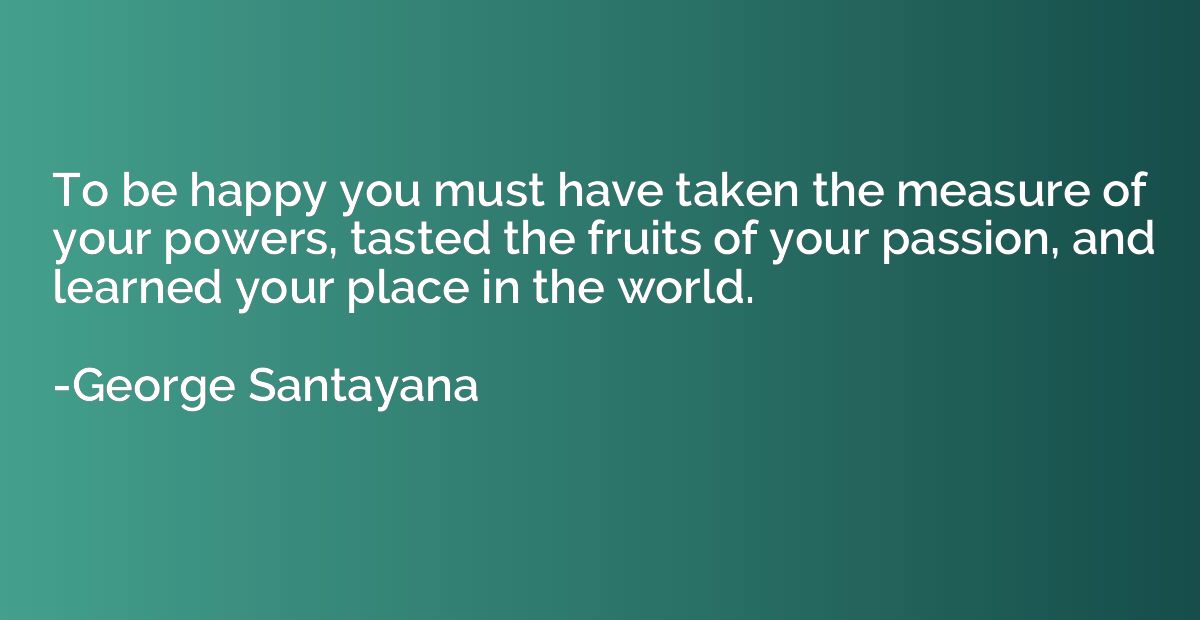Quote by George Santayana
To be happy you must have taken the measure of your powers, tasted the fruits of your passion, and learned your place in the world.

Summary
This quote suggests that true happiness can be achieved by understanding and embracing oneself. To be happy, one must fully understand their capabilities and strengths, and utilize them to pursue their passions. By experiencing the positive outcomes of their endeavors, individuals find fulfillment and contentment. Additionally, finding one's place in the world, both in terms of personal identity and societal involvement, contributes to a sense of purpose and satisfaction. Ultimately, the quote emphasizes the importance of self-awareness, pursuing passions, and finding a sense of belonging as key components of leading a happy life.














